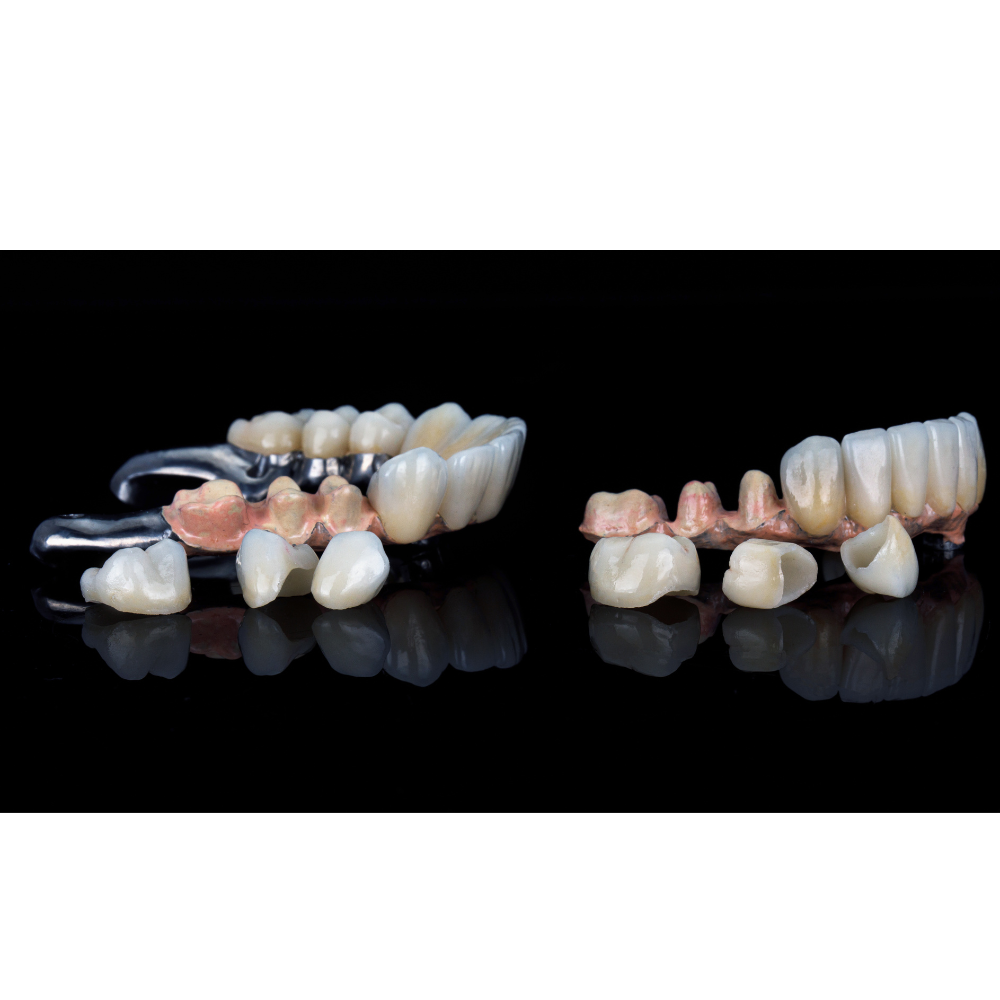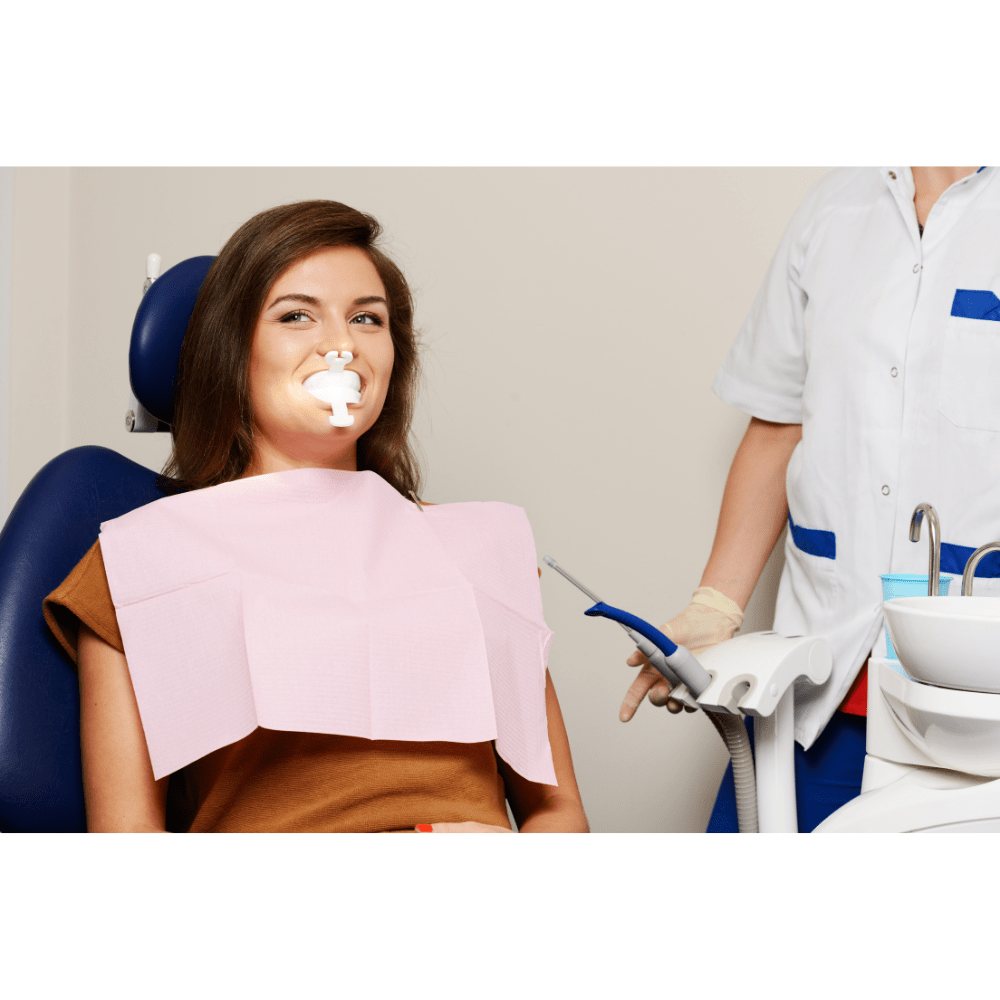What To Do If Your Teeth Feeling Numb? | Know The Causes, Treatment, And All
Our teeth are strong and play a very important role in our everyday lives, from chewing food to speaking clearly. But sometimes we can experience unexpected sensations in our teeth like a dull ache or sharp pain. One particularly concerning feeling is numbness in the teeth. This condition can arise unexpectedly and for various reasons often described as a tingling or a lack of feeling.
The sensation of numb teeth can be disruptive whether after a dental procedure, from exposure to cold temperatures, or without any clear cause. This unexpected numbness can make you wonder about the underlying issues. In this article, we will explore the various reasons behind tooth numbness, and its symptoms and discuss effective treatments.
What To Do If Your Teeth Feeling Numb?
Numb teeth can be a scary experience. Here are some steps you can take if your teeth feel numb.
Rinse with Warm Salt Water:
This can help reduce inflammation and discomfort. Dissolve 1/2 teaspoon of table salt in a glass of warm water and swish gently for 30 seconds.
Apply a Cold Compress:
A cold compress on your cheek can offer temporary relief if there’s any swelling around your numb teeth.
Consider Recent Dental Work:
If you’ve recently had dental work done, like a filling, crown, or root canal, the numbness might be a temporary side effect of the procedure. However, if the numbness persists for more than a few days, it’s still best to see your dentist.
Maintain a Healthy Diet:
Stick to soft foods that are easy to chew while waiting for your appointment. This will help minimize discomfort and prevent further irritation to the teeth feeling numb and the numb area.
Teeth Numbness Symptoms
- A complete loss of feeling in one or more teeth.
- A tingling or prickling sensation in the affected teeth.
- Difficulty feeling hot or cold when biting down.

Treatment Options For A Numb Tooth
Here are some treatment options for your numb tooth:
Antibiotics:
If an infection is causing the numbness, antibiotics will be prescribed to clear it up.
Root Canal Therapy:
If the pulp inside the tooth is infected or damaged, a root canal may be necessary to remove the infected tissue and save the tooth.
Medication:
Depending on the cause, your dentist might prescribe medication to manage pain, inflammation, or nerve-related issues.
Splinting:
In cases of dental trauma, a splint might be used to stabilize the tooth and promote healing.
Surgical Procedures:
In very rare cases, surgery might be needed to address complex nerve damage or other underlying issues.
Ways To Address Numb Feeling In Front Teeth
Diagnosis:
The cause of the numb feeling in the front tooth needs to be identified first. Any attempt to treat it at home could be ineffective or even harmful without a proper diagnosis.
Schedule a dental appointment ASAP:
Your dentist can examine your teeth, ask questions about your symptoms, and perform any necessary tests to determine the cause. They will recommend the most effective treatment plan to restore feeling and function to your front teeth once they have a diagnosis.
Get Dental Treatment:
You should avoid doing any DIY specially to treat numb feeling in front teeth as they are the visible teeth. Dentists have the training and equipment to diagnose the cause of your numbness and recommend the most appropriate treatment. Home remedies simply can’t replicate this expertise.
Causes Of Teeth Numbness
Here are some teeth numbness causes:
Dental Infection:
A common culprit is an infection in the tooth or surrounding tissues. This infection can irritate or damage nerves, leading to numbness.
Dental Trauma:
A blow to the mouth can damage the nerves that supply sensation to your teeth, resulting in numbness.
Sinus Issues:
In rare cases, problems with your sinuses can cause referred pain or numbness in your teeth.
Underlying Medical Conditions:
Some medical conditions like diabetes or trigeminal neuralgia can cause numbness in the face and teeth.

Can A Toothache Cause Numbness In The Face?
Yes, a toothache can cause numbness in the face in some situations. Here are the reasons:
Inflammation:
A severe toothache often involves inflammation that can spread to surrounding tissues and nerves. This inflammation can sometimes affect nerves in your face which leads to your teeth feeling numb.
Nerve Damage:
In some cases, a bad toothache might indicate significant damage that extends to the nerves supplying sensation to your teeth and face. This damage can cause numbness in both the tooth and surrounding areas.
FAQs
Why Do Teeth Feel Numb When I Wake Up?
If you sleep with your face pressed against something for a long time, it can temporarily numb your teeth due to pressure on nerves. Grinding or clenching your teeth at night can also cause temporary numbness.
Can Teeth Numbness Go Away On Its Own?
Sometimes if it’s caused by pressure or temporary inflammation, it might go away on its own. But if it persists, see a dentist.
Is Tooth Numbing A Common Issue?
A brief numbness might not be a big deal. However, persistent numbness is uncommon and requires a dentist’s evaluation.
Is Numbness A Side Effect Of Anxiety?
No, It is less likely that numbness can be caused by anxiety but it can cause tingling sensations.



